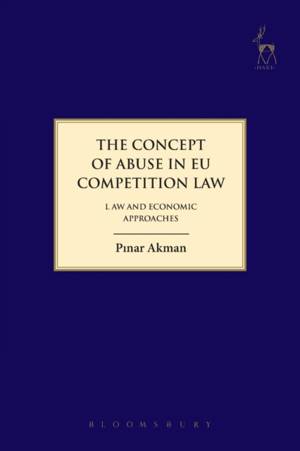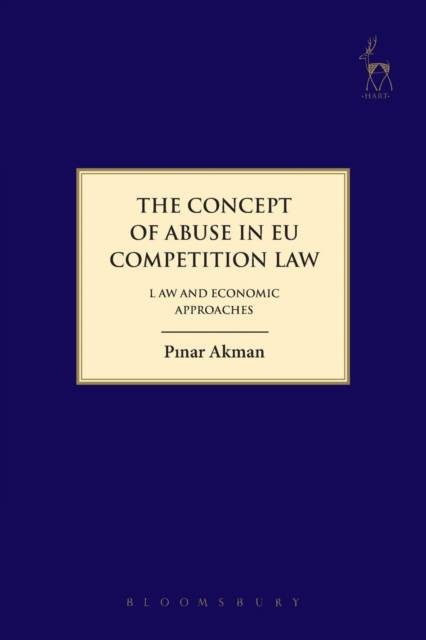
- Retrait gratuit dans votre magasin Club
- 7.000.000 titres dans notre catalogue
- Payer en toute sécurité
- Toujours un magasin près de chez vous
- Retrait gratuit dans votre magasin Club
- 7.000.0000 titres dans notre catalogue
- Payer en toute sécurité
- Toujours un magasin près de chez vous
Description
Under Article 102 TFEU (Treaty on the Functioning of the European Union), it has yet to be settled as to what exactly makes a practice abusive or how to measure the standard of harm. This lack of clarity creates uncertainty for businesses and raises an important question of legitimacy. This book - now available in paperback - inquires into the possible objectives of Article 102 TFEU and proposes a modern approach to interpreting 'abuse.' In doing so, it establishes an overarching concept of 'abuse' that conforms: to the historical roots of the provision, to the text of the provision itself, and to modern economic thinking on unilateral conduct. The book therefore inquires into what Article 102 TFEU is about, what it can be about, and what it should be about. The book demonstrates that the separation of exploitative abuse from exclusionary abuse is artificial and unsound. It examines the roots of Article 102 TFEU and the historical context of the adoption of the Treaty, the case law, policy, and literature on exploitative abuses and, where relevant, on exclusionary abuses. It investigates potential objectives, such as fairness and welfare, as well as potential conflict between such objectives. Finally, the book critically assesses the European Commission's modernization of Article 102 TFEU, before proposing a reformed approach to 'abuse, ' which is centered on three necessary and sufficient conditions: exploitation, exclusion, and a lack of an increase in efficiency. *** "There is...every reason to welcome the novel perspectives and methodological approaches explored by the author, one of the most promising legal scholars in the field and one who will undoubtedly deliver works of a similar high quality in the future." -- Pablo Ibanez Colomo, The Modern Law Review (Series: Hart Studies in Competition Law) [Subject: EU Law, Competition Law, Law and Economics
Spécifications
Parties prenantes
- Auteur(s) :
- Editeur:
Contenu
- Nombre de pages :
- 376
- Langue:
- Anglais
- Collection :
Caractéristiques
- EAN:
- 9781849469722
- Date de parution :
- 18-06-15
- Format:
- Livre broché
- Format numérique:
- Trade paperback (VS)
- Dimensions :
- 155 mm x 231 mm
- Poids :
- 566 g

Les avis
Nous publions uniquement les avis qui respectent les conditions requises. Consultez nos conditions pour les avis.






